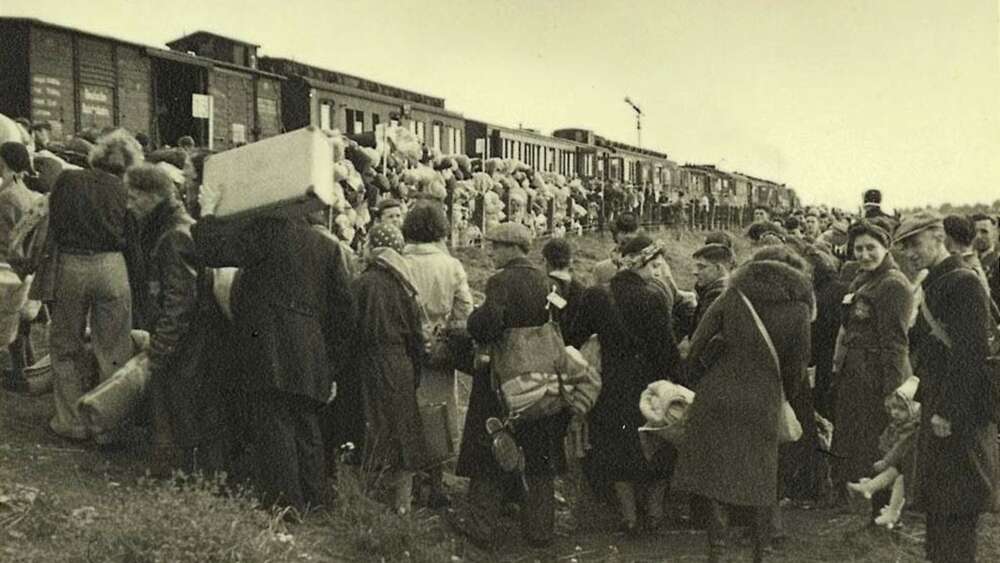The Dutch Protestant Church has admitted it did not do enough to help Jews during and after World War II.
Speaking on behalf of the General Synod of the Protestant Church in the Netherlands, René de Reuver made the historic statement at a ceremony to mark the anniversary of Kristallnacht – ‘Night of Glass.’ This was a night of terror for Jewish people throughout Germany and Austria in November, 1938, when the Nazis vandalised thousands of Jewish businesses, burned down hundreds of synagogues and arrested almost 30,000 Jewish men. Many would later be taken to concentration camps.
“The church helped prepare the breeding ground in which the seeds of anti-Semitism and hatred could grow.”
“The Protestant Church in the Netherlands wants to recognise without hesitation that the church helped prepare the breeding ground in which the seeds of anti-Semitism and hatred could grow,” de Reuver said.
“For centuries, the rift was maintained that could later isolate the Jews in society in such a way that they could be deported and murdered. Even during the war years themselves, the ecclesiastical authorities often lacked the courage to choose a position for the Jewish inhabitants of our country. This is despite the acts of incredible personal courage that, thank God, were also performed by members of the churches. With gratitude we remember those who had the courage to resist during the war.”
Among those courageous few in the Dutch church who did resist during World War II was Corrie Ten Boom and her sister, Betsie, who hid Jews and political refugees in their home behind a false wall in Corrie’s bedroom. Some estimates suggest more than 800 people were hidden by Corrie and Betsie.
Their house was raided by the Nazis in 1944, and the sisters were sent to the infamous Ravensbrück concentration camp, which was exclusively for women. Betsie died in Ravensbrück, but Corrie was released only days later. The reason for her release has never been made clear, cited as a “clerical error.” A week after her release, all of the female prisoners from her age group were killed. After the war, Corrie set up a rehabilitation centre for concentration camp survivors. She travelled the world as a public speaker, talking about reconciliation and forgiveness. She wrote a book about her experience called The Hiding Place in 1971.
“Anti-Semitism is sin against God and against people.”
Over 100,000 Dutch Jews were killed during World War II, after being deported and sent to Nazi concentration camps. Almost three quarters of the Jewish population in Holland at the time did not survive.
“Anti-Semitism is sin against God and against people,” said de Reuver.
De Reuver said the church fell short in its silence during World War II, and admitted that the Church’s “reception of Jews” who returned to Holland after 1945 was also painfully lacking, such as the matter of restitution of Jewish property when some in the Jewish community returned from concentration camps. There also was a reluctance from Christian families who had fostered children orphaned in the war to return them to surviving Jewish relatives.
De Reuver said the Dutch Protestant Church would work alongside Jewish leaders to build “a deep friendship of two equal partners, united among others in the fight against contemporary anti-Semitism.”
“Never before has the Protestant Church sought a dialogue with our Jewish discussion partners in this way. It is late that this will only happen in the 75th year of the liberation. We hope not too late.”
In January, Dutch Prime Minister Mark Rutte made the country’s first official apology for Holland’s role during the Holocaust and its lack of action against the persecution of Jewish people.
“With the last remaining survivors among us, I apologise on behalf of the government for the actions of the government at the time,” Rutte said at an event in Amsterdam to mark the 75th anniversary of the liberation of the Auschwitz death camp.
He said too many government officials simply followed German orders. “In all, we did too little. Not enough protection, not enough help, not enough recognition.”
Email This Story
Why not send this to a friend?




